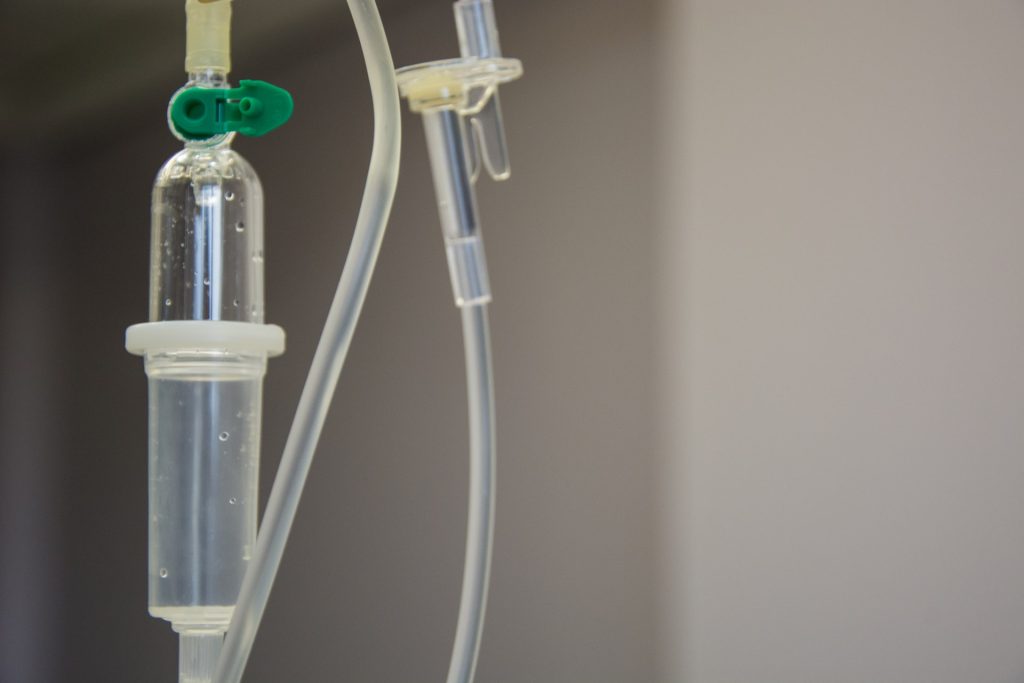
New trial results show that early administration of the blood thinner heparin to moderately ill hospitalised COVID patients with could halt the thrombo-inflammation process, reducing the risk of severe disease and death.
COVID is characterised by inflammation and abnormal clotting in the blood vessels, especially the lungs, and is believed to contribute to progression to severe disease and death.
The study is available as a preprint on MedRxiv and was led by investigators at St. Michael’s Hospital, a site of Unity Health Toronto, and the University of Vermont’s Larner College of Medicine.
Heparin, an anticoagulant, is indicated for both the prevention and treatment of thrombotic events such as deep vein thrombosis (DVT) and pulmonary embolism as well as atrial fibrillation. Heparin is also used to prevent excess coagulation during procedures such as cardiac surgery, extracorporeal circulation or dialysis. Heparin also has a wide range of off-label uses in hospitals. “This study was designed to detect a difference in the primary outcome that included ICU transfer, mechanical ventilation or death,” said study co-principal investigator Mary Cushman, MD, MSc, professor of medicine at the UVM Larner College of Medicine.
The open-label randomised international multi-centre clinical RAPID Trial (also known as the RAPID COVID COAG – RAPID Trial) examined the benefits of administering a therapeutic full dose of heparin versus a prophylactic low dose to hospitalised patients with moderate COVID.
The primary outcome was a composite of ICU admission, mechanical ventilation, or death up to 28 days. Safety outcomes included major bleeding. Primary outcome occurred in 16.2% of patients with therapeutic full dose heparin, and 21.9% with low dose heparin (odds ratio [OR], 0.69). Four patients (1.8%) with therapeutic heparin died vs 7.6% with prophylactic heparin (OR, 0.22).
“While we found that therapeutic heparin didn’t statistically significantly lower incidence of the primary composite of death, mechanical ventilation or ICU admission compared with low dose heparin, the odds of all-cause death were significantly reduced by 78 percent with therapeutic heparin,” said first author and co-principal investigator Michelle Sholzberg, MDCM, MSc, Head of Division of Hematology-Oncology, medical director of the Coagulation Laboratory at St. Michael’s Hospital of Unity Health Toronto, and assistant professor at the University of Toronto.
Co-principal investigator Peter Jüni, MD, director of the Applied Health Research Centre (AHRC) at St. Michael’s, and professor of medicine at the University of Toronto, said that the researchers also presented a meta-analysis of randomised evidence (including data from a large multiplatform trial of ATTACC, ACTIV-4a and REMAP-CAP), which clearly indicated that therapeutic heparin is beneficial in moderately ill hospitalised COVID patients. He added that an additional meta-analysis presented in the preprint showed that therapeutic heparin is beneficial in moderately ill hospitalised patients but not in severely ill ICU patients.
Unusually, the RAPID Trial was funded through grassroots efforts from various institutions, grants and even a GoFundMe campaign.
“We called this trial ‘The Little Engine that Could,’ because of the sheer will of investigators around the world to conduct it,” said Cushman.
Sholzberg said, “We believe that the findings of our trial and the multiplatform trial taken together should result in a change in clinical practice for moderately ill ward patients with COVID.”
Source: University of Vermont
Journal information: Michelle Sholzberg et al, Heparin for Moderately Ill Patients with Covid-19, MedRxiv (2021). DOI: 10.1101/2021.07.08.21259351

